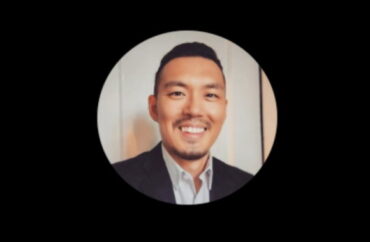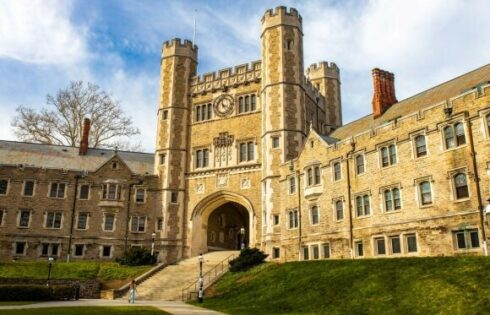
An assistant sociology professor at the University of Colorado Colorado Springs argued during a recent conference that elections in North Korea are “thorough” and “community-based.”
“In the tradition of communist and socialist election system, we discussed the candidates so thoroughly before even we cast the vote, that’s often why it’s like the election result is 100 percent,” Professor Haruki Eda said at the conference protesting U.S. involvement in Korea.
Eda presented at the “U.S. Out of Korea” conference organized by Nodutdol, a progressive Korean organization, on Oct. 26 in Aurora, Colorado. Nodutdol is known for sending delegations to North Korea and is often criticized for excusing North Korean human rights violations.
Eda said North Korea “invented games to vote, like practice voting and practice discussing the candidates in advance,” and election campaigns are run as “community gatherings.”
“It’s a very thorough discussion system where they practice this community-based grassroots way of vetting people and deciding on our leaders,” Eda said.
During his presentation, which was posted on YouTube by a citizen journalist*, Eda showed a photo he claimed was related to such community based elections in 1947 or 1948, but stated he “did not know the full context of the event.”
Professor Eda and the University of Colorado Colorado Springs did not return multiple requests for comment from The College Fix.
“Central to the event was a ‘Korea 101’ presentation by Haruki Eda, a local educator and longtime member of Nodutdol, who stated, ‘Many civilians were massacred across the peninsula by both the South Korean and U.S. militaries,’” the socialist news outlet FightBack News reported.
“During the Korean War, 18 of the 22 major cities in the North were more than 50 percent destroyed. This included bombing dams and flooding whole areas of farmland, towns, and villages. That’s an act of genocide,” Eda said during the conference, which linked the situation in Korea to the Israeli-Palestinian conflict.
The Asia Pacific Foundation in Canada states that “given the historical pattern of high voter turnout and near-unanimous approval of single candidates, North Korea’s electoral process has been viewed more as a sophisticated form of state-controlled electoral theatrics than authentic democratic system.”
Additionally, since the foundation of North Korea in 1948, the communist country “has used the black-and-white ballot box system, theoretically enabling voters to openly express approval or dissent. This system’s practical implementation in a single-candidate context curtails genuine freedom of expression, particularly as the ballot boxes were conspicuously placed in public polling spaces.”
Human Rights Watch states that North Korea is “one of the most repressive countries in the world” and it “systematically denies basic liberties, including freedom of expression, association, assembly, and religion.”
Nodutdol, the organization that hosted the conference, states on its website that the group strives to “organize for a world free of imperialism, and for Korea’s re/unification and national liberation.”
Nodutdol did not return requests for comment from The College Fix.
The organization has also recently supported pro-Palestinian protest movements on U.S. campuses.
In a recent statement on its website, Nodutdol states it “reject[s] any attempts to describe the Palestinian resistance and the forces of the Axis of Resistance as ‘terrorist organizations.’”
Eda, who according to his website biography traveled to North Korea in 2011 as part of a trip organized by Nodutdol, also talked about his version of East Asia’s 20th century history during his presentation at the conference.
According to the professor, “The U.S. did not have to drop atomic bombs in Japan at all because they knew that Japan was going to surrender anyway, but the U.S. did it just to show it off to the Soviet Union.”
“Immediately after the liberation [of Korea from Japan] people were very much ready to govern themselves and all over the peninsula people were starting up these mechanisms and organizations called people’s committees,” he said.
“Right before the Korean War started in the North, we finally have a socialist country independent even though the southern half is occupied. We now have a full country to govern ourselves and make progress on our socialist revolution,” he said.
Of North Korea’s advance into South Korea with an army trained and equipped by the Soviet Union in 1950, Professor Eda said “North Korea coming to the South is not an invasion even at the level of international law.”
According to Eda, “North Korea decided to liberate the southern half.”
Eda, who uses he/they pronouns, states on his website: “I belong to the third generation of Zainichi Koreans, who are stateless postcolonial exiles and quasi-refugees of Korean descent in/from Japan. My ancestors crossed the sea from colonial Korea to imperial Japan and lost their way home due to the Korean war and division.”
Professor Eda is moderating a future Nodutdol event on Donald Trump and North Korea next week.
*Editor’s note: StuStuStudio is a paid independent contractor for The College Fix, but not for this particular article and video.
IMAGE: Instagram screenshot
Like The College Fix on Facebook / Follow us on Twitter






Please join the conversation about our stories on Facebook, Twitter, Instagram, Reddit, MeWe, Rumble, Gab, Minds and Gettr.